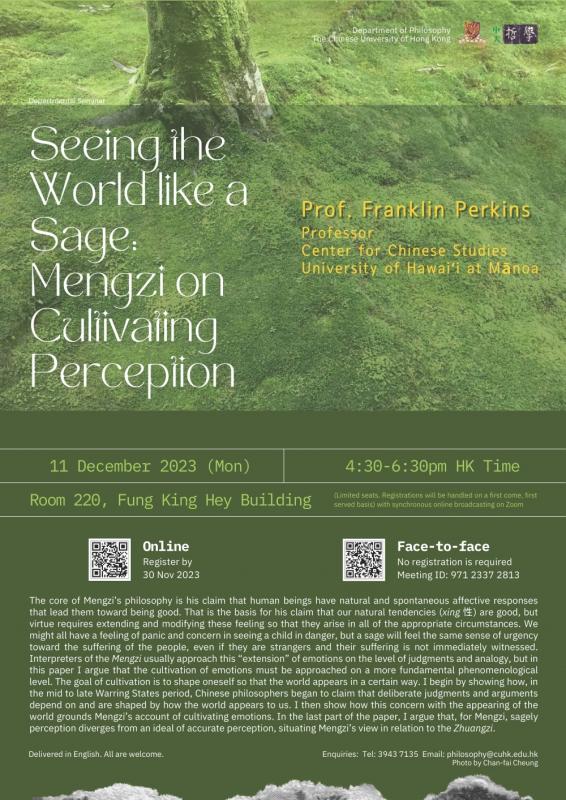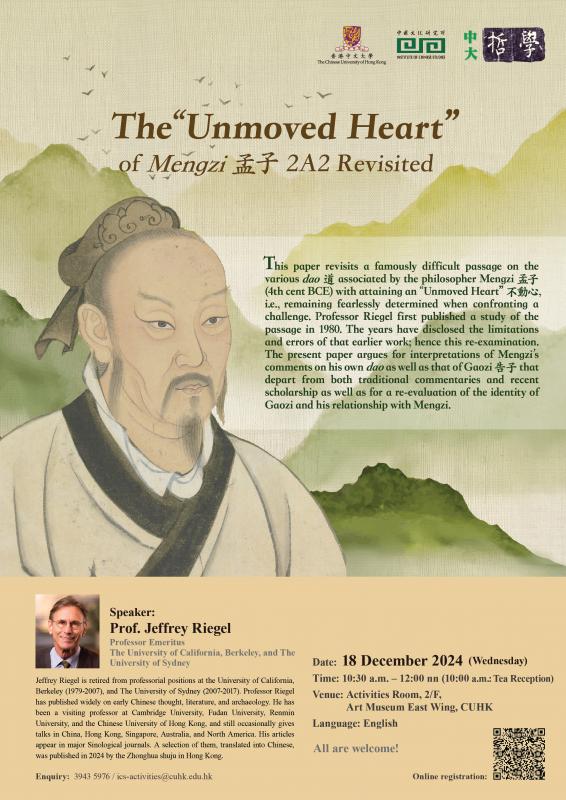
Speaker
Prof. Franklin Perkins
Professor, Center for Chinese Studies, University of Hawaiʻi at Mānoa
The core of Mengzi’s philosophy is his claim that human beings have natural and spontaneous affective responses that lead them toward being good. That is the basis for his claim that our natural tendencies (xing 性) are good, but virtue requires extending and modifying these feeling so that they arise in all of the appropriate circumstances. We might all have a feeling of panic and concern in seeing a child in danger, but a sage will feel the same sense of urgency toward the suffering of the people, even if they are strangers and their suffering is not immediately witnessed. Interpreters of the Mengzi usually approach this “extension” of emotions on the level of judgments and analogy, but in this paper I argue that the cultivation of emotions must be approached on a more fundamental phenomenological level. The goal of cultivation is to shape oneself so that the world appears in a certain way. I begin by showing how, in the mid to late Warring States period, Chinese philosophers began to claim that deliberate judgments and arguments depend on and are shaped by how the world appears to us. I then show how this concern with the appearing of the world grounds Mengzi’s account of cultivating emotions. In the last part of the paper, I argue that, for Mengzi, sagely perception diverges from an ideal of accurate perception, situating Mengzi’s view in relation to the Zhuangzi.
Online
No registration is required
Meeting ID: 971 2337 2813
Link: https://cuhk.zoom.us/j/97123372813
Face-to-face
Register by 7 Dec 2023
Link: https://cloud.itsc.cuhk.edu.hk/webform/view.php?id=13678839


